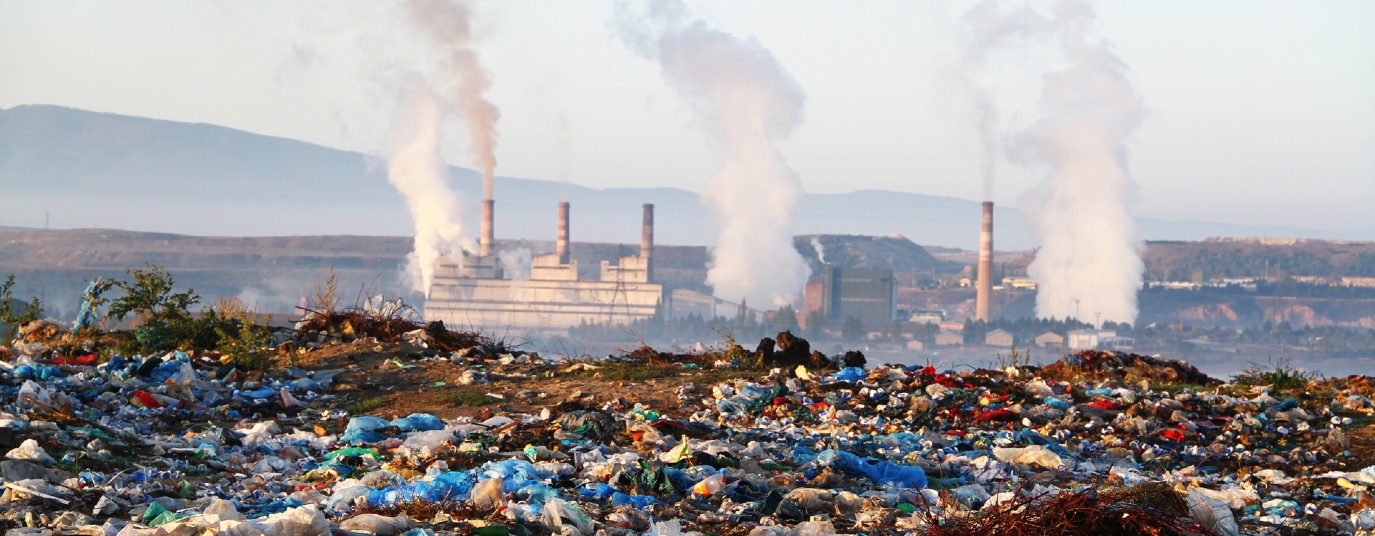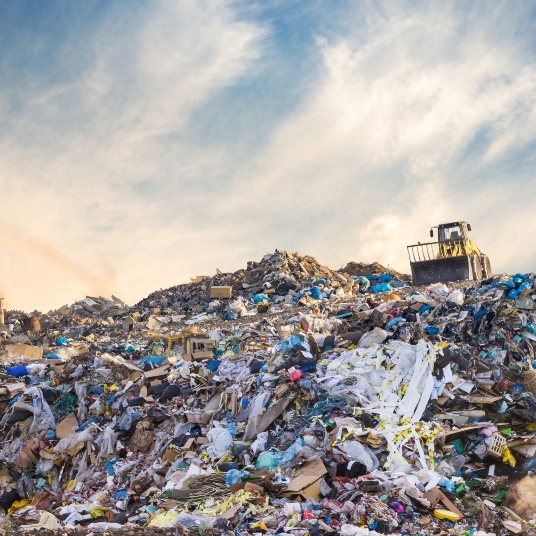Methane is the second most dangerous greenhouse gas
Experts are clear: Reducing methane emissions is one of the most efficient strategies to combat global warming
The current average global temperature is already 1.1°C higher than that of the pre-industrial era. And all because of the rise in greenhouse gases. Emissions released into the air since the mid-19th century are having catastrophic repercussions on the planet. Repercussions that we can mitigate if we tackle the root problem: reducing emissions.
For decades, efforts to mitigate climate change have been centred on reducing carbon dioxide (CO₂) emissions. However, the latest report by the United Nations Intergovernmental Panel on Climate Change (IPCC) has called attention to the role of another gas in global warming: methane.
What will I find out from this article?
- What is methane gas?
- Why is methane a greenhouse gas?
- Reducing methane is the fastest way to curb global warming
What is methane gas?
 Methane (CH₄) is a hydrocarbon and is the main component of natural gas. And about 40 % of methane originates from natural sources such as wetlands. However, most of it derives from a range of nature-related human activities, such as intensive livestock farming, certain agricultural practices and fossil fuel extraction. It also comes from landfills and burning waste.
Methane (CH₄) is a hydrocarbon and is the main component of natural gas. And about 40 % of methane originates from natural sources such as wetlands. However, most of it derives from a range of nature-related human activities, such as intensive livestock farming, certain agricultural practices and fossil fuel extraction. It also comes from landfills and burning waste.
It's the most potent gases in terms of global warming. Methane is one of the so-called greenhouse gases. And its presence in the atmosphere only keeps growing.
Why is methane a greenhouse gas?
Methane is one of the biggest contributors to global warming, second only to CO₂. The IPCC suggests that this gas is responsible for between 30 % and 50 % of the temperature increase. In fact, it has been estimated that methane, as a greenhouse gas, has given rise to an additional 0.5°C of global warming.
"This gas is responsible for between 30 % and 50 % of the temperature increase"
But why is methane causing the temperature to rise?
Greenhouse gases are chemically stable compounds that remain in the atmosphere for decades or centuries. Contrary to what many people think, the greenhouse effect is not necessarily bad — quite the opposite! It's a natural phenomenon that allows our planet to maintain the conditions necessary for life to exist. So, the presence of CO₂ or CH₄ is vital for our survival.
The problem arises when emissions of these gases exceed optimum levels. For decades, we've been emitting quantities of CO₂ and CH₄ far beyond our means. What is more, we haven't established the necessary mechanisms to eliminate these gases. So, ultimately, these excess emissions are causing long-term climate change. Go to this article to learn more about the topic.
How is this gas dangerous ⚠?
In 2019, methane in the atmosphere reached record levels — around two and a half times more than those of the pre-industrial era. Some of the scientific community's data is worrisome, since methane is one of the most potent gases in terms of the surge in global temperature.
"Methane is one of the most potent gases in terms of the surge in global temperature "
However, one positive aspect of methane is that it doesn't last as long in the air as CO₂. That is to say, methane, as a greenhouse gas, causes further global warming but disappears in two decades, while CO₂ contributes less to global warming and remains in the atmosphere for hundreds of years.
"If you emit a tonne of methane today, in a decade's time, I would expect half that tonne to remain in the atmosphere. In two decades, time, there would be a quarter of a tonne", Professor Peter Thorne, one of the IPCC scientists, told the BBC. "So basically, if we managed to stop emitting methane today by the end of this century, emissions would be down to natural levels that they were in about 1750", he adds.
Experts stress that reducing methane can be an invaluable way of curbing global warming
The group of climate change experts is clear: Countries must make "strong, rapid, and sustained reductions" in methane emissions, as well as cut down CO₂ emissions. This is made clear in the Sixth Assessment Report on climate change published in August, which states that “Cutting methane is the single biggest and fastest strategy for slowing down global warming".
In addition, according to the UN, reducing methane is our most effective means of curbing climate change. Not to mention that it would prevent 260,000 premature deaths, 775,000 asthma-related hospital visits, 73,000 million lost hours of labour due to extreme heat, and 25 million tonnes of crop losses per year.
Reduce methane to reduce the global temperature by 0.3ºC
A global assessment of methane as a greenhouse gas published by the Climate and Clean Air Coalition (CCAC) and the United Nations Environment Programme (UNEP) shows that human-caused methane emissions could be reduced by 45 % over the next decade. Such reductions would prevent almost 0.3°C of global warming by 2045, and would help meet the Paris Agreement’s objective to limit global temperature rise to 1.5°C.
"Human-caused methane emissions could be reduced by 45 % over the next decade"
The report notes that most human-caused emissions of methane as a greenhouse gas can be traced back to three sectors: fossil fuels, waste and agriculture. The assessment identifies measures to reduce this gas, mostly aimed at the fossil fuel sector, where it is relatively easy to locate and repair methane leaks and reduce its release. There are also specific measures for the waste and agriculture sectors.
If we want to stabilise the climate, we will need to reduce greenhouse gas emissions substantially, rapidly and steadily. Limiting chemical compounds such as methane will be beneficial, both for health and for the climate.

